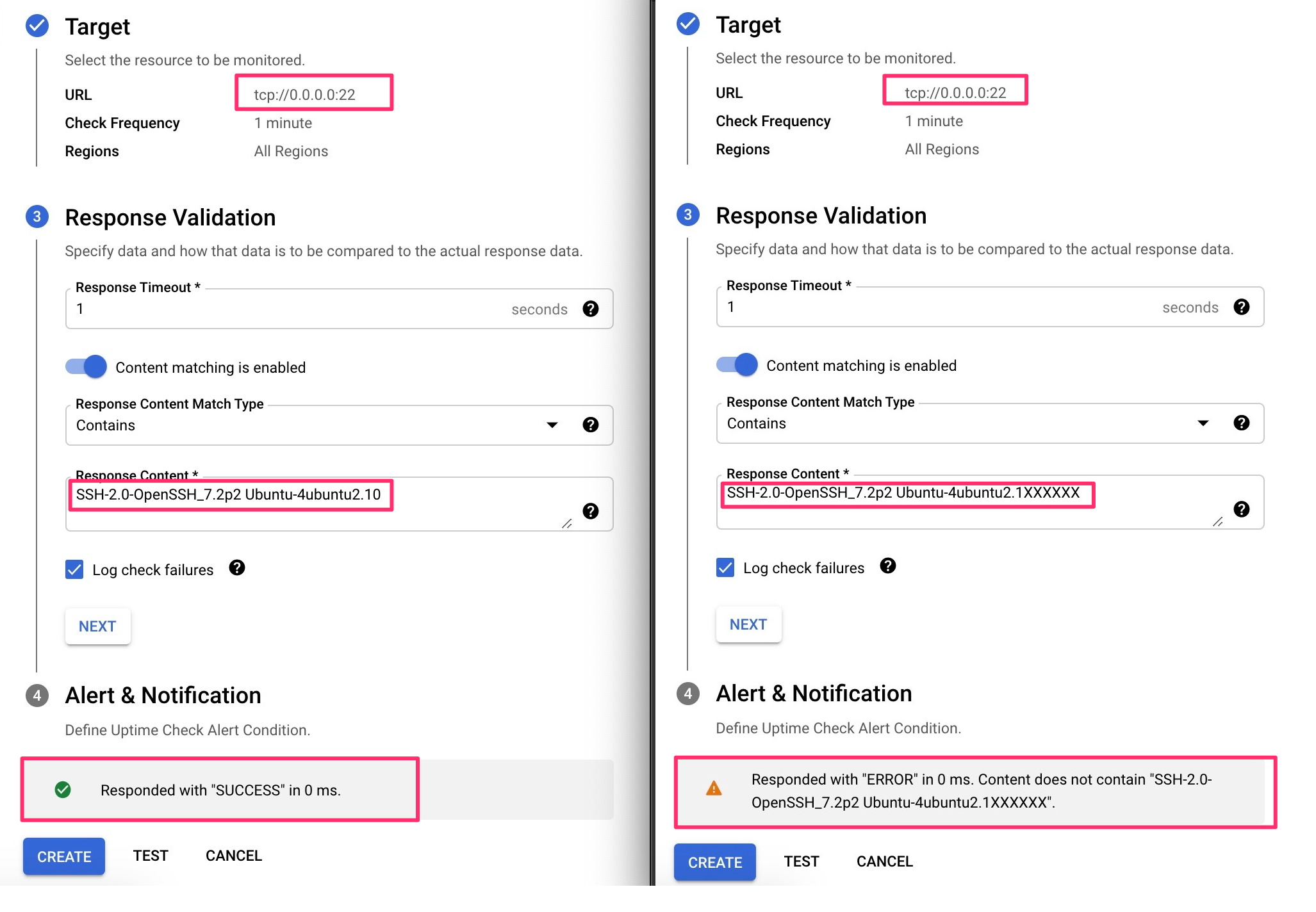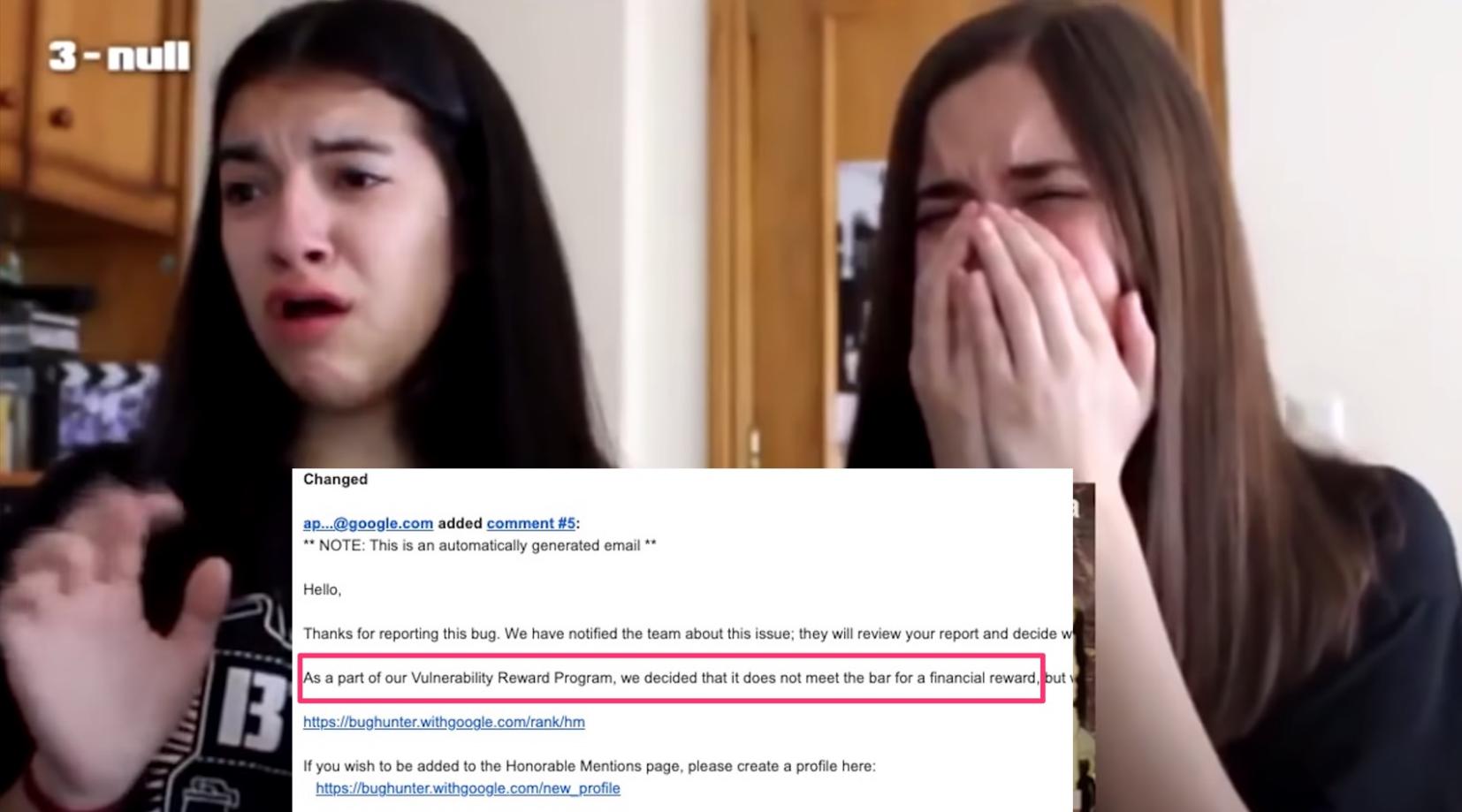Introduction:
Hi everyone It’s been a while since my last post, but I’m back, I want to tell you a very short story about one of my last bugs, and how I managed to bypass some Google Cloud Monitoring protections to achieve an SSRF
This blogpost appeared first in the book Bug Bounty Write Ups Collection
Background:
This is just a lame “bypass” or workaround for the fix that Google implemented for David Nechuta’s 31k USD SSRF (write up reference 31k$ SSRF in Google Cloud Monitoring led to metadata exposure)
Extracted from Google VRP’s report: (the actual Google VRP report)
Summary: SSRF (“Skipping Unsafe Address” bypass) in https://console.cloud.google.com/monitoring/uptime
Steps to reproduce:
1.- Go to https://console.cloud.google.com/monitoring/uptime
2.- click on “CREATE UPTIME CHECK”
1 Title: anything
2 Target:
– TCP
– URL
– Hostname: 0.0.0.0 (it seems that there is some regex that blocks any IP starting with 127.*,169.*,10.*,172.*, 192.* or some common local IPs, but not quad zero)
– Port: 22
3 Response validation:
– Response timeout: 1s
– Content matching: is enabled
– Response Content: “SSH-2.0-OpenSSH_7.2p2 Ubuntu-4ubuntu2.10” (without the quotes)
4 Alert and Notification: Do not create an alert
5 Click on “TEST” button
3.- Exploitation
If you set the host 0.0.0.0 and Response Content match to “SSH-2.0-OpenSSH_7.2p2 Ubuntu-4ubuntu2.10” you are going to get the following message Responded with “SUCCESS” in 0 ms. and you can start playing the responses. Something worth mentioning is that if the request takes 0 ms seconds was because we hit localhost; if you change “SSH-2.0-OpenSSH_7.2p2 Ubuntu-4ubuntu2.10” for anything else or add any extra char the response will be Responded with “ERROR” in 0 ms. Content does not contain “any string”.
Attack scenario:
The attacker can perform server-side requests directly to the localhost, for example in this case to get a local service banner as SSH
Each time that you send a “Response Content *” string check in the “Response Validation” option, you will get just 2 different JSON responses, if the response contains “contentMismatch”: true, the string does not match, but it contains “checkPassed”: true, that means that the local server response match that string, per example the string “SSH” match, so at this point, you can get the banner it with some permutations, per example if you start checking “SSH[1..9-_aZ]” etc. and “SSH-“ matches, then you can start looking for “SSH-[1..9-_aZ]” and if “SSH-2” match you can then start looking for “SSH-2[1..9-_aZ]” and so on, and this can be easily automated with burp suite or any language program
Report Timeline:
Jan 5, 2021: Sent the report to Google VRP
Jan 6, 2021: Got a message from google that the bug was triaged (P3)
Jan 15, 2021:  Nice catch! Bug Accepted (P3 → P2)
Nice catch! Bug Accepted (P3 → P2)
Jan 21, 2020: Got a message from Google that the issue does not meet the bar for a financial reward
Jan 21, 2020: I had a little chat with GoogleVRP’s team (Eduardo @sirdarckcat and he did a double check on this, thank you very much!), but not reward anyway.
March, 2020: Fixed by Google
Well that’s it, share your thoughts, what do you think about how they handle that security issue? If you have any doubt, comments or suggestions just drop me a line here or on Twitter @omespino, read you later.



thank you so much for sharing writeups